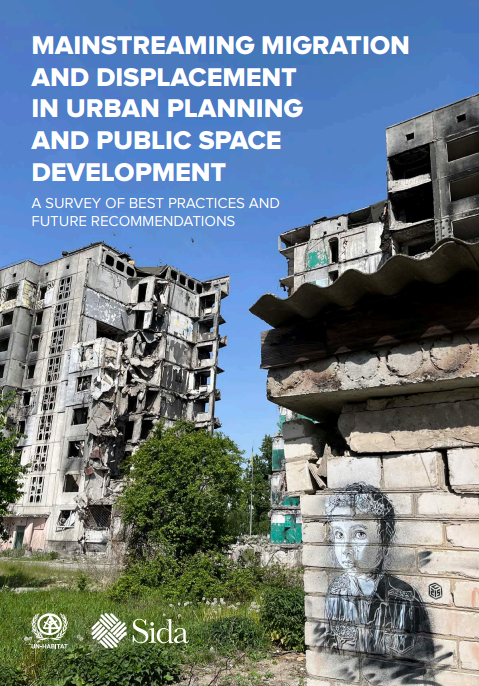Mainstreaming Migration and Displacement in Urban Planning and Public Space Development
A Survey of Best Practices and Future Recommendations

This publication focuses on the intersection of urbanisation and migration, emphasising the challenges and opportunities that cities face as they accommodate increasing numbers of migrants and displaced people. It aims to provide innovative and sustainable solutions to improve living conditions and access to services for all residents, moving beyond traditional humanitarian responses.
The publication highlights UN-Habitat’s efforts to address these challenges and promote equity, integration, and sustainability through participatory urban planning and inclusive public spaces. It presents five broad principles for improving urban planning and public space development in contexts impacted by protracted displacement:
- Multi-Scalar Urban and Territorial Planning: Engaging affected communities and fostering cooperation between various actors.
- Informed Decision-Making: Using urban profiling and spatial analysis based on local data and knowledge to tailor interventions.
- Locally-Led and Responsive Policies and Governance: Empowering local authorities to manage urban migrants effectively.
- Inclusive and Participatory Processes: Incorporating participatory approaches to promote social cohesion and meet diverse needs.
- Local Economic Development: Prioritising economic considerations to stimulate growth and enhance livelihoods.
These recommendations are supported by case studies and examples from UN-Habitat's recent operational programming. The publication aims to guide urban practitioners, policymakers, and local authorities in developing policies and programmes that advance evidence-based approaches and establish best practises for managing urban migration and displacement.
Abstract based directly on original source.


Comments